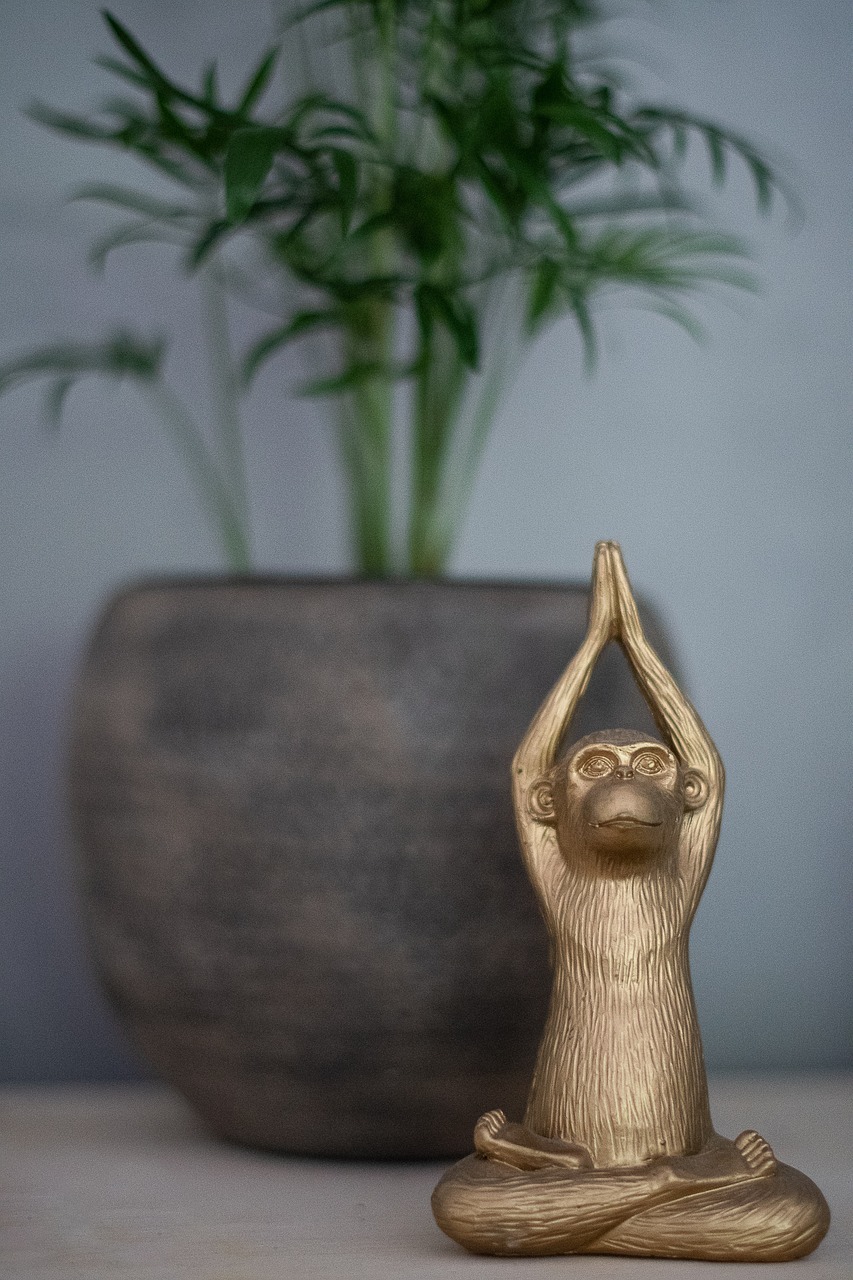Meditation, an ancient practice with roots in diverse cultures and traditions, has gained widespread popularity in the modern world. From stress relief to spiritual growth, the benefits of meditation are numerous and well-documented. In this comprehensive exploration, we will explore the long history of meditation. We will examine its many proven benefits through scientific research. Additionally, we will explore the different types of meditation practices that have developed over time.
History of Meditation
Meditation has a rich and diverse history that spans thousands of years and numerous cultures. Its origins can be traced back to ancient civilizations in India, where it was integrated into the spiritual practices of Hinduism. Early references to meditation can be found in the Vedas, ancient texts that date back over three millennia. The Upanishads, which emerged later, also contain early descriptions of meditation techniques. In China, meditation was intertwined with Taoist philosophy and became an integral part of Taoist practices, such as martial arts and traditional Chinese medicine.
The teachings of Siddhartha Gautama, the historical Buddha, significantly influenced the development of meditation. He popularized meditation as a means of achieving enlightenment and spiritual awakening. As Buddhism spread throughout Asia, diverse forms of meditation emerged within different Buddhist traditions, including Theravada, Mahayana, and Vajrayana. The practice of meditation found its place within the broader context of yoga in ancient India. The Yoga Sutras of Patanjali provided a systematic framework for meditation as part of the eightfold path of yoga.
Evolution
Meditation continued to evolve throughout history, with various forms emerging in East Asian traditions, such as Zen, which emphasizes seated meditation (zazen). In the modern era, meditation has gained global popularity, transcending its religious and cultural origins. It has become widely recognized for its potential benefits on mental well-being and stress reduction. Today, diverse meditation techniques, such as mindfulness meditation, loving-kindness meditation, and transcendental meditation, are practiced worldwide. These practices contribute to the ongoing evolution of this ancient tradition in modern society.
Benefits of Meditation
Numerous scientific studies have demonstrated the tangible benefits of meditation on physical and mental health.
Brain Changes
Neuroimaging studies have shown that regular meditation can lead to structural changes in the brain. These changes include increased gray matter density in areas associated with attention, emotional regulation, and self-awareness. These changes may contribute to improved cognitive functions and emotional well-being.
Stress Reduction
Research has consistently shown that meditation can lower levels of the stress hormone cortisol, leading to reduced stress and anxiety. Studies have also demonstrated that meditation can positively impact the body’s physiological response to stress, leading to lower blood pressure and improved heart rate variability
Emotional Well-Being
Scientific evidence suggests that meditation may help reduce symptoms of anxiety and depression. It can also contribute to an overall improvement in emotional regulation and well-being. Some studies have even indicated that meditation can enhance positive emotions and resilience to negative experiences.
Pain Management
Studies have shown that meditation can help individuals manage chronic pain by altering their perception of pain and increasing their pain tolerance. Meditation may also contribute to a reduction in the emotional unpleasantness associated with pain.
Immune System Function
Research has suggested that meditation may have a positive impact on immune system function, potentially leading to improved resistance to illness and faster recovery from illness.
Cognitive Performance
Scientific findings indicate that meditation can enhance cognitive functions such as attention, memory, and executive function. Regular meditation practice has been associated with improved working memory and sustained attention.
These scientific facts underscore the substantial body of evidence supporting the beneficial effects of meditation on both physical and mental health.

Spiritual Benefits
In addition to the mental, emotional, and physical benefits, meditation can offer profound spiritual benefits. It provides individuals with opportunities for self-discovery, inner peace, and a sense of connection to something greater than themselves. Through introspection and contemplation, individuals often gain deeper insights into their true nature, finding a greater sense of authenticity and purpose.
Many practitioners also report experiencing moments of transcendent peace and unity. These moments foster a profound sense of interconnectedness with the universe and a heightened awareness of the spiritual dimensions of life. Additionally, meditation practices focused on compassion and loving-kindness can lead to the cultivation of empathy. These practices also foster a deeper connection to others, contributing to a sense of spiritual fulfillment and interconnectedness.
These spiritual benefits of meditation are deeply personal and can vary widely among individuals. For some, meditation serves as a gateway to profound inner experiences. It offers opportunities for spiritual growth, transformation, and the cultivation of a deeper, more meaningful connection to the world around them.
Types of Meditation
There are numerous types of meditation, each with its own techniques, goals, and traditions. Some of the most widely practiced forms of meditation include:
Mindfulness Meditation
This form of meditation involves cultivating an open and nonjudgmental awareness of the present moment, often by focusing on the breath or bodily sensations. Mindfulness meditation has been widely embraced in clinical settings as a means to alleviate stress, manage chronic pain, and enhance overall well-being.
Loving-Kindness Meditation
Also known as “Metta” meditation, this practice involves cultivating feelings of love, compassion, and goodwill towards oneself and others. Research has shown that loving-kindness meditation can foster positive emotions, improve social connections, and reduce symptoms of PTSD and depression.
Transcendental Meditation
A technique that involves silently repeating a mantra to achieve a state of deep relaxation and heightened awareness. Transcendental meditation has been associated with reduced anxiety, improved focus, and enhanced cardiovascular health.
Yoga Meditation
Integral to yoga, this form of meditation combines physical postures, breathing exercises, and mindfulness techniques to achieve mental and physical balance. Yoga meditation encompasses a holistic approach to well-being, integrating the ancient wisdom of yoga philosophy with practical techniques for self-awareness and inner transformation.
Zen Meditation
Rooted in Zen Buddhism, this practice focuses on breath awareness and the observation of thoughts and emotions without attachment. Zen meditation, or zazen, aims to cultivate deep insight and a sense of inner peace through disciplined practice and self-inquiry.
Chakra Meditation
This type of meditation is rooted in Hindu and Buddhist traditions and focuses on the body’s energy centers, known as chakras. Practitioners may use visualization, breathing techniques, and mantras to balance and align the chakras.
Vipassana Meditation
Originating from the Theravada Buddhist tradition, vipassana meditation involves developing insight through the observation of bodily sensations, thoughts, and emotions. It is often practiced in silent retreat settings and is known for its transformative effects on practitioners’ perceptions of reality and self-awareness.
Guided Visualization
This form of meditation involves mentally visualizing peaceful scenes, positive affirmations, or desired outcomes to promote relaxation, stress reduction, and goal setting.
Movement-Based Meditation
Practices such as Tai Chi, Qigong, and walking meditation integrate mindful movement with breath awareness to cultivate a sense of calm, balance, and physical well-being.
Sound Meditation
Utilizing sound as a focal point, sound meditation often involves the use of singing bowls, chanting, or binaural beats to induce states of deep relaxation, heightened awareness, and emotional release.

Meditation, with its rich history and diverse array of practices, continues to be a source of profound transformation and well-being for countless individuals around the world. Whether seeking stress relief, spiritual growth, or self-discovery, the benefits of meditation are both timeless and scientifically validated.
By exploring the various types of meditation and integrating practice into daily life, one can embark on a journey of self-exploration. This journey can lead to inner peace and the reaping of the many rewards that meditation has to offer. As science continues to uncover the neurological, psychological, and physiological impacts of meditation, its integration into healthcare, education, and corporate settings is expanding. As a result, meditation is increasingly recognized as a valuable tool for promoting mental health, emotional resilience, and overall quality of life.
When embracing the diverse traditions and techniques of meditation, individuals can tap into its transformative potential. This fosters a greater sense of well-being, balance, and harmony in an increasingly fast-paced and interconnected world.
